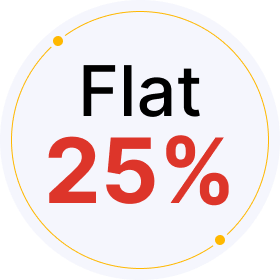
- Toshendra Kumar Sharma
- April 05, 2019
Considering the popularity and hype gained by blockchain technology in the past decade, it wouldn’t be too much to say that blockchain technology is definitely a game changer and is regarded as the next big thing to have happened following the invention of the internet. Put simply, it holds a record of each and every transaction which can be accessed by everyone, thereby eliminating the need for a central authority. It is a repository that collects data in encrypted blocks.
Let’s take a look at some of the real-world applications of blockchain technology across various industries, which demonstrate substance beyond the hype.
1. Supply chain management
Blockchains increase the overall efficiency of supply chains. It provides accurate identification of the location of items on the supply chain. It thus removes the need for paper-based trails. It helps prevent losses and monitor the quality of products while in production.
2. Digital IDs
With an estimated 1 billion people worldwide not having an identity, Microsoft is working on creating ids to empower impoverished people and refugees. This would help in linking them with the formal financial sector. It aims to do this through its Authenticator app. The authenticator doesn’t just use a password. It uses an extra layer of protection that uses a code or a token to identify a returning user or a device. It is an ideal way for users to control their digital identities.
3. Healthcare
The patient, being the central point of the healthcare ecosystem, has the right to accurate information. It can also be looked into as a matter of life and death. Privacy and security of health data are very important. It helps in tracking the serials and batch numbers of prescription drugs. Hospitals have moved away from paper for recordkeeping and they use blockchain technology to store patient data, which is kept confidential. The patient would be given a number key to access these records, thereby keeping him in control of who can view that data. Patient diagnoses can also be stored, so as to track the patient’s health history.
4. Wills or inheritances
Paper wills or inheritances can now be replaced with digital ones which can be created and stored using the blockchain network. It must be used along with smart contracts as it would make your document both legally binding and crystal clear as to who should receive which assets when you pass away. This puts your end-of-life concerns to rest.
5. Food safety
Intriguing use of blockchain in food safety is the ability to trace your food from its origin to your plate. Using the immutable nature of blockchain, the transport of food products from their origin to the supermarket can be traced. In the case of food-borne illnesses, the source of the contaminant can be traced quickly and accurately.
6. Digital voting
Voter fraud has always been a great concern. It will not be anymore. You can make your vote truly count with the immutable nature of the blockchain. It will make voting transparent and any changes made to the network would be noticed by the regulators. The token-based system created using blockchain technology will ensure the system of ‘one unchangeable vote per person.’
7. Real estate
Ownership and title details are stored on the blockchain, thereby making it easier to transfer ownership and trace ownership. Eliminating paper from the equation, it offers a crystal-clear picture of legal ownership. Titles are stored on the blockchain network and can be viewed, altered, and updated whenever required.
8. Data sharing
Introduced by IOTA, a distributed ledger technology developed by the IOTA Foundation, it involves using the blockchain to share or sell unused data. The unused data bundles of enterprises could be routed to places that need it the most. Blockchain can be used as a marketplace to store data which can be used to improve a host of industries.
9. Weapons tracking
Blockchain technology would enable the federal government and law enforcement to track weapon or gun ownership. It will act as an unchanging and transparent registry which will also aid in keeping a record of weapons sold privately.
10. Copyright and royalty protection
Copyright and ownership laws on music, videos, blogs, and other online content are a must in today’s day and age. These laws can be made secure through blockchain technology. Digital content downloads would be a good option as it ensures that the artist or the creator of the content also gets their fair share. Blockchain would also provide real-time and authentic royalty distribution data to content creators and musicians.
Blockchain technology is an innovation which has been embraced by a majority of people. Though the functionalities of blockchain are commendable, one needs to remember that it is not the solution to every problem and that different blockchains will suit a variety of needs and circumstances. The applications of blockchain will widely vary from one industry to the other.


































































 Guides
Guides News
News Blockchain
Blockchain Cryptocurrency
& Digital Assets
Cryptocurrency
& Digital Assets Web3
Web3 Metaverse & NFTs
Metaverse & NFTs
